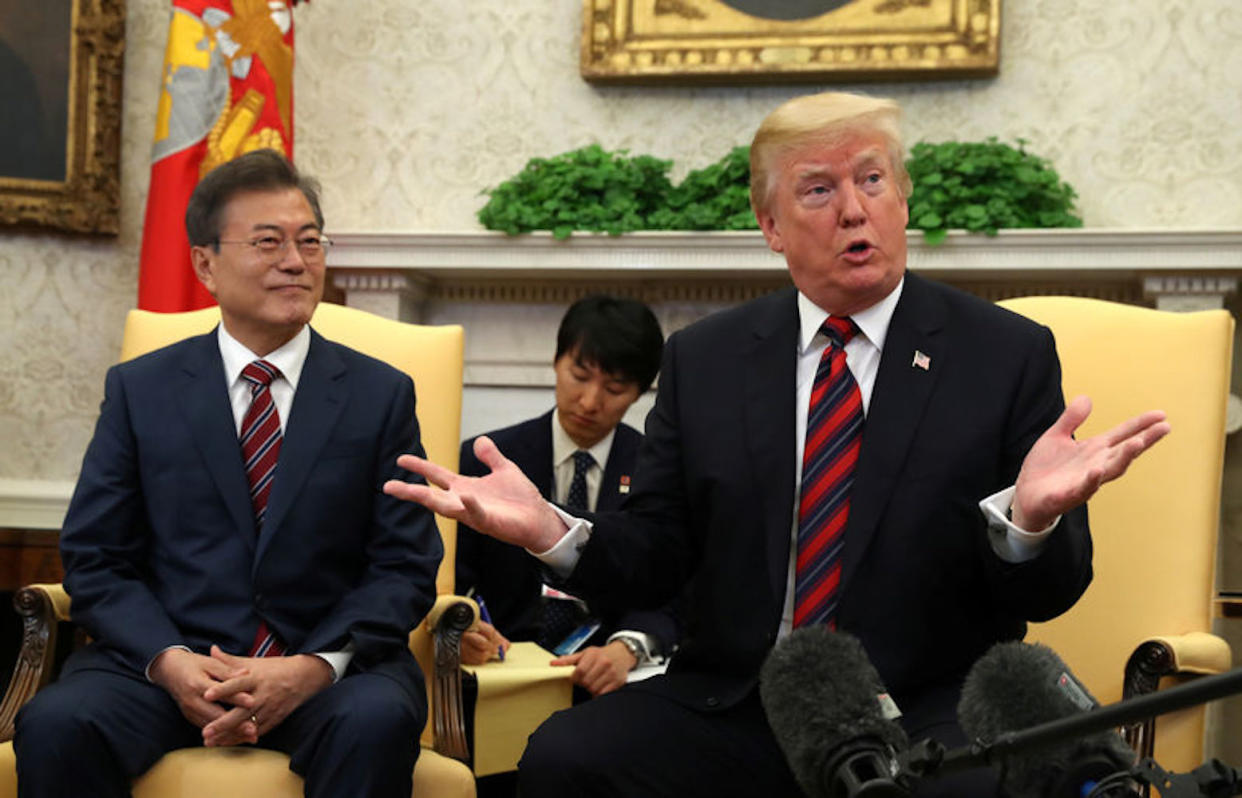Charles Stanley CEO: The key threat to the global economy is not Trump's trade war or Brexit

Donald Trump’s protectionist measures and subsequent trade wars as well as the future of the European Union in light of Brexit are fuelling fears within markets across the globe.
However, the chief executive of UK-listed investment management firm Charles Stanley told Yahoo Finance UK that not only are fears and analysis around the two topics “exaggerated” but the biggest threat to the global economy is not in the spotlight.
“The one area that is talked about less but is a concern is the continuing story that is linked to the financial crisis, with the background being the incredible growth in credit as a driver of the global economy,” said Paul Abberley, CEO of Charles Stanley, which has $30.8bn (£23.8bn) of assets under management.
“Central banks have essentially picked up that baton and created vast amounts of credit to keep things moving along. We’re reaching the end of the road in that regard and we’re trying to rein in that creation of credit. We do have a concern that at some point that it is something which could undermine the global economy.”
READ MORE: Brexit and Trump’s trade war are not enough to bring about the end of globalisation
Central banks cut interest rates to make borrowing and therefore debt servicing cheaper. It’s a key way to stimulate spending and to keep the economy growing. After the financial crisis, these institutions slashed rates to some decades-long record lows. However, that also leads to households taking on a heap of debt and there is a fine balancing act for monetary policy authorities for when to raise rates.
A report in July disclosed that global debt hit a record high of $247tn in the first quarter of 2018. When you drill down to the level of how much debt households are taking on, the data is extremely worrying. For example, in the US, total household debt rocketed to a record $13.15tn. In Britain, the debt accumulation trend is similar and now, for the first time in three decades, households collectively spent more than they earn, according to the Office for National Statistics.
The US Federal Reserve has raised interest rates seven times since 2015, citing solid economic expansion and job gains. However, earlier this week, St. Louis Federal Reserve Bank president, James Bullard, made the case for halting further rate hikes even though other Fed official are pushing for more. In the UK, rate rises have been less frequent. In August, the Bank of England raised interest rates for only the second time since March 2009 to 0.75% and analysts say it’s unlikely we’ll see further rate hikes within the year.
It’s for this reason Abberley says the group’s fears for the global economy are based around debt and the impact on the financial markets rather than Brexit or Trump’s trade wars.
“One thing that is absolutely critical [to understand] is that a lot of the issues today are ones that people get emotional about. People get emotional about Trump and Brexit and as an investment manager you cannot afford that,” he said.
“So, the way we approach the task of managing portfolios on behalf of the clients are is that it is irrelevant what the individual may think about Trump or Brexit for that matter. We try to be cooly rational. The only objective we have is to make sure we maximise the risk-adjusted return that delivers for clients’ portfolios. I think some of these things at the moment is that many of the positions people take are exaggerated, quite frankly.”
He pointed out that emerging markets is manifesting those fears.
“Our fears in terms of the global economy and therefore equities are less about Brexit and less about Trump and the trade wars more about the global economy adjusting successfully to a post extraordinary monetary policy. The stresses we’re seeing in the emerging markets might be a bit of an indicator that the economy and the financial markets are in a difficult transition,” he said


